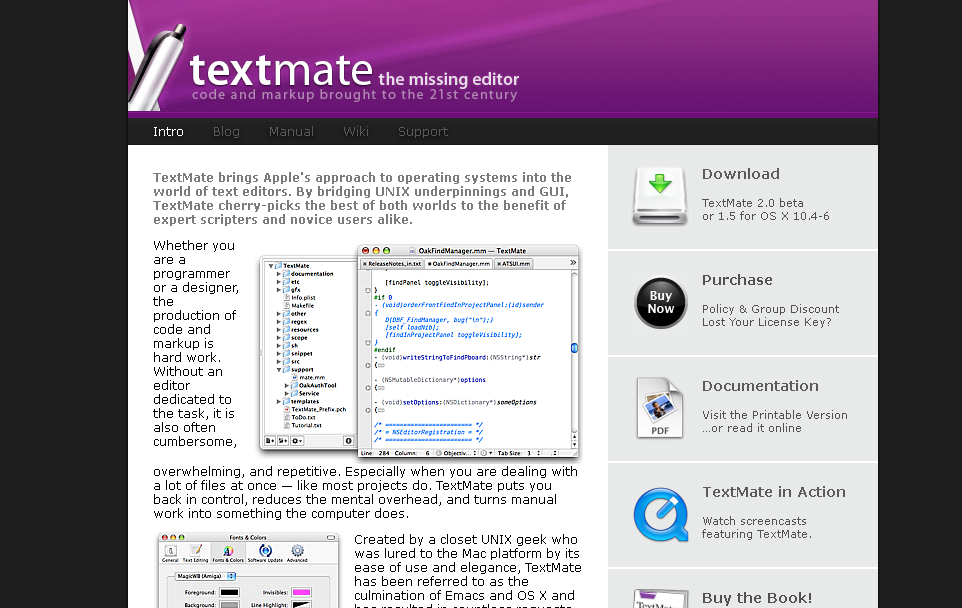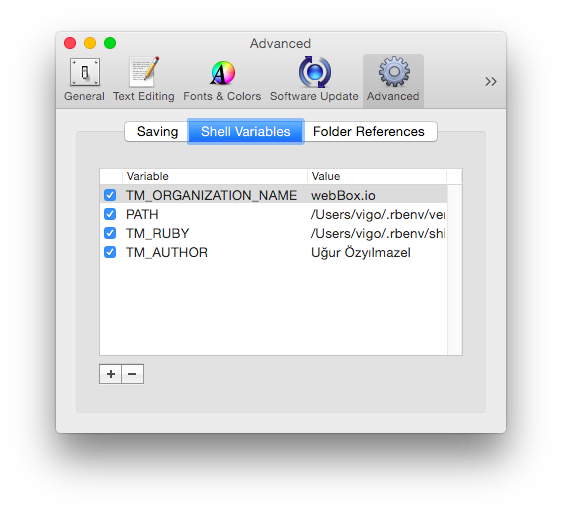


#Textmate tm code
We do have some ruby support code that most of the run commands use, it will save an untitled document to a temporary file and setup TM_FILEPATH accordingly, meaning that the command can be assert that TM_FILEPATH always points to an up-to-date file.Ī simple example of this is: #!/usr/bin/env ruby18 -wKU If you wish to run the command decoupled from any potential save, then you should read the document from stdin. The command can read the document content via stdin, that will be the current state of the document.ĭo you wish for the command to never save the document? There are a few options, but it depends on your goal.įor example, if you wish the command to fire after a save operation (how it is presently setup, although by overloading the ⌘S key, which we discourage) then you can set the semantic class to ‘-save’ then it is automatically called after each save, and can read the document via the TM_FILEPATH environment variable (note that if you do this, you should make sure that “Save” is set to “Nothing” to avoid a loop).

Use TM_«tool» and use it without quotes if there is a chance the tool might be multiple tools. TextMate is free-form in the sense that you can assign basically any name you wish to any part of the document that you can markup with the grammar system and.Locations = ( '/usr/local/bin/clang-format' ) Latest version of the grammar can be also found as a VSCode extension. Search Path Required Commands requiredCommands = ( TypeScript-TmLanguage This repository contains TmLanguage files that are consumed by TypeScript editors and plugins such as Visual Studio Code, The TypeScript Sublime Plugin, Atom TypeScript, and possibly others. Commands with non-zero exit code treated as error.


 0 kommentar(er)
0 kommentar(er)
